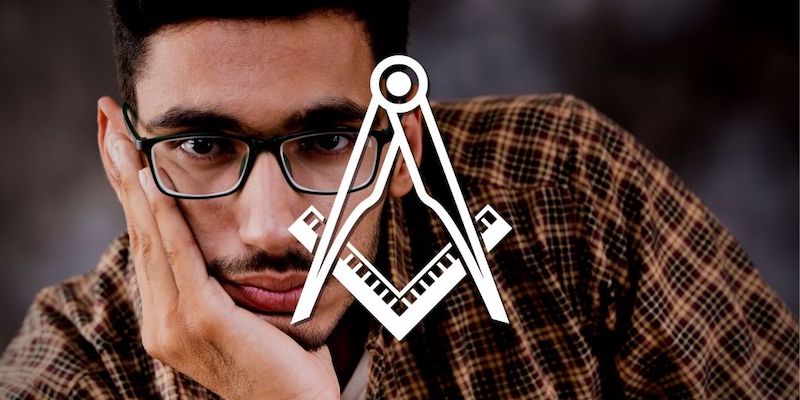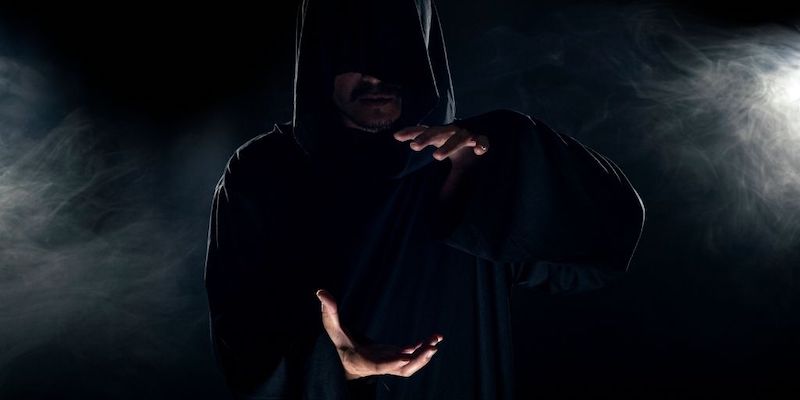Freemasonry has a rich history dating back centuries, with members from all walks of life.
However, it is not uncommon for members to become disinterested in the fraternity for various reasons.
In this article, we will explore 14 reasons why disinterested Masons may lose their passion for Freemasonry.
TLDR: One reason for disinterest in Freemasonry could be the lack of time or energy to dedicate to the organization. Masonic lodges often require members to attend meetings and participate in events, which can be difficult for those with busy schedules or other commitments. Additionally, some members may find that the time and effort required to advance through the ranks of the organization is not worth the reward.

Lack of Interest in the Lodge
Disinterest in the lodge is one of the main reasons why some Masons become disinterested in Freemasonry. Here are some reasons why:
Lack of Time
Many Masons have busy schedules and find it difficult to make time for lodge meetings and activities.
This can lead to a lack of engagement and, eventually, disinterest in the organization.
Some Masons may also feel that lodge meetings are too long or that there are too many of them.
This can make it difficult for them to stay engaged and interested in the organization.
Lack of Connection to Other Members
Another reason why some Masons become disinterested in Freemasonry is that they do not feel connected to other members of the organization.
This can be due to a lack of social events or opportunities to build relationships with other members.
Some Masons may also feel that they do not have anything in common with other members of the organization.
This can make it difficult for them to form meaningful connections and become engaged in the organization.
Negative Experiences with Members
Finally, some Masons may become disinterested in Freemasonry due to negative experiences with other members of the organization.
This can include conflicts with other members or feeling excluded from certain activities or events.
Some Masons may also feel that other members of the organization are not living up to the values and principles of Freemasonry.
Dissatisfaction with Masonic Rituals
One of the reasons why disinterested Masons become disinterested in Freemasonry is due to their dissatisfaction with Masonic rituals.
The rituals are an integral part of Freemasonry, and they are meant to impart moral and ethical lessons to the members.
However, some Masons find the rituals to be tedious, meaningless, and irrelevant.
This dissatisfaction can lead to a lack of interest in the organization and, eventually, to resignation.
Lack of Understanding of Rituals
One reason why some Masons are dissatisfied with the rituals is that they do not understand them.
The rituals are often steeped in symbolism and allegory, and it can be challenging to decipher their meaning. Masons who do not understand the rituals may find them to be meaningless and tedious.
This lack of understanding can lead to frustration and disinterest in the organization.
Lack of Meaning in Rituals
Another reason why some Masons are dissatisfied with the rituals is that they do not find them to be meaningful.
The rituals are meant to impart moral and ethical lessons, but some Masons may not see the relevance of these lessons in their daily lives.
They may find the rituals to be outdated or irrelevant, which can lead to disinterest in the organization.
Lack of Relevance in Rituals
Finally, some Masons may be dissatisfied with the rituals because they do not see the relevance of Freemasonry in their lives.
The rituals are meant to be a part of a larger system of self-improvement and moral development, but some Masons may not see how Freemasonry fits into their personal goals and aspirations.
This lack of relevance can lead to disinterest in the organization and, eventually, to resignation.
Disagreements with Masonic Philosophy
Disinterested Masons may have disagreements with the philosophy of Freemasonry.
These disagreements can be related to beliefs and values that are central to the organization’s teachings.
Here are some reasons why Masons may become disinterested due to disagreements with Masonic philosophy:
Disagreements with Beliefs
Some Masons may have disagreements with the beliefs held by the organization. These beliefs may include:
- The existence of a Supreme Being
- The immortality of the soul
- The importance of secrecy and confidentiality
Disinterested Masons may feel that these beliefs conflict with their personal beliefs or values, leading to a lack of interest in the organization.
Disagreements with Values
Masons may also disagree with the values that are central to the organization. These values may include:
| Value | Description |
|---|---|
| Brotherhood | The idea that all Masons are brothers and should support each other |
| Charity | The importance of giving back to the community and helping those in need |
| Morality | The belief in living a moral and ethical life |
Disinterested Masons may feel that these values conflict with their personal values, leading to a lack of interest in the organization.
Financial Issues
Freemasonry is not free, and money is also a common reason why some Masons become disinterested in the organization.
The cost of dues and fees, as well as the lack of financial stability, can be significant factors in their decision to leave.
Cost of Dues and Fees
Joining a Masonic lodge requires paying dues and fees, which can vary depending on the lodge and location.
Some Masons may find that the cost of membership is too high, especially if they are experiencing financial difficulties.
They may also feel that the benefits of membership do not justify the cost.
For example, according to a report by NPR, the average annual dues for a Masonic lodge in the United States are around $200.
However, some lodges may charge more or less than this amount.
In addition to dues, members may also be required to pay fees for events, fundraising, and other activities.
Lack of Financial Stability
Another financial issue that can cause disinterest in Freemasonry is the lack of financial stability in some lodges.
Some Masons may feel that their dues and fees are not being used effectively or that the lodge is not managing its finances properly.
This can lead to a lack of trust in the organization and a reluctance to continue supporting it financially.
In some cases, lodges may also experience financial difficulties due to declining membership or other factors.
This can result in a decrease in the quality of events and activities offered by the lodge, which can further contribute to disinterest among members.
Overall, financial issues can be a significant factor in why some Masons become disinterested in Freemasonry.
Whether it is due to the cost of membership or a lack of financial stability in the organization, these concerns can lead to a loss of trust and a decrease in participation among members.
Lack of Growth and Development Opportunities
One of the main reasons why disinterested Masons became disinterested in Freemasonry is the lack of growth and development opportunities.
Masons who are seeking to improve their skills and knowledge often find that the organization does not provide enough opportunities for them to do so.
This lack of growth and development opportunities can lead to members feeling stagnant and unfulfilled, which can eventually lead to their disinterest in the organization.
Lack of Educational Programs
One of the ways in which the lack of growth and development opportunities manifests is through the lack of educational programs.
Many Masons join the organization seeking to learn new skills and gain knowledge, but find that the organization does not offer enough educational programs to meet their needs.
Without these programs, members may feel that they are not growing and developing as they had hoped.
Furthermore, some members may find that the educational programs that are available are not well-organized or are not of high quality.
This can further contribute to their disinterest in the organization.
Lack of Leadership Opportunities
Another way in which the lack of growth and development opportunities manifests is through the lack of leadership opportunities.
Many members join the organization seeking to take on leadership roles and develop their leadership skills, but find that there are not enough opportunities to do so.
This can lead to members feeling frustrated and unfulfilled, and can eventually lead to their disinterest in the organization.
Furthermore, some members may find that the leadership opportunities that are available are not well-organized or are not of high quality. This can further contribute to their disinterest in the organization.
In summary, the lack of growth and development opportunities is a major reason why disinterested Masons become disinterested in Freemasonry.
By addressing this issue and providing more educational and leadership opportunities, the organization can help to keep its members engaged and fulfilled.
Negative Perceptions of Freemasonry

Misconceptions about Freemasonry
Freemasonry has been the subject of many misconceptions over the years, which have contributed to negative perceptions of the organization.
Some of the most common misconceptions include:
- Freemasonry is a secret society that engages in illegal or immoral activities.
- Freemasons worship the devil or other supernatural entities.
- Freemasonry is a religion or a cult.
- Freemasons are involved in political conspiracies.
These misconceptions are largely unfounded and have been perpetuated by sensationalized media coverage and conspiracy theories.
Negative Stereotypes about Freemasons
In addition to misconceptions, there are also negative stereotypes associated with Freemasonry that contribute to disinterest in the organization.
Some of these stereotypes include:
- Freemasons are elitist and exclusive.
- Freemasons are all men and do not accept women.
- Freemasons are wealthy and powerful.
- Freemasons are disconnected from the rest of society.
While these stereotypes may have some basis in reality, they do not accurately represent the diverse membership of Freemasonry.